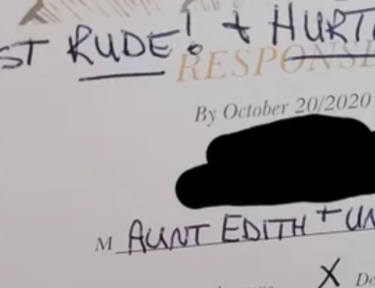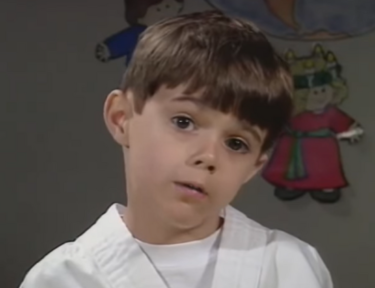Standout Hockey Goalie Who Was Sexually Assaulted And Then Bullied Online Dies At 16
Suicide can sometimes feel like a taboo subject. Perhaps it’s easy to think that if we ask someone if they are having suicidal thoughts it might actually put those thoughts in their head when they weren’t already there. Other times, not discussing suicide can lead to, well, suicide.
McKenna Elizabeth Brown committed suicide at the age of 16 years old. Her parents decided to share her story because they thought knowing about their daughter’s story might help others.
On the website SameHereGlobal.org, Brown’s family shared that their daughter was “compassionate, charismatic, socially, academically and athletically gifted.” She did well in school, had lots of friends, and was an outstanding hockey goalie. From the outside, it seemed like she had everything going for her, but there was something else going on that her parents didn’t know about until it was too late.
Next #MentalHealthAwarenssMonth family to share on the #LIFESaver Wall is that of McKenna Brown. Standout hockey goalie from Tampa, sexually assaulted & then a target of online bullying, we lost her to suicide at only 16. Her parents share to help others: https://t.co/SF8KOlQtab pic.twitter.com/Qi1GTQuGC2
— #SameHere Global Mental Health Movement 501c3 (@SameHere_Global) May 4, 2023
When Brown was 14 years old, she was sexually assaulted. She didn’t tell her family about it, but it came to light shortly before her death when four of her friends and teammates “bullied, exposed, and humiliated” her by sharing screenshots and details about the sexual assault she experienced two years prior. They also attempted to “cancel” her.
Within 24 hours, Brown took her own life. Her family didn’t see it coming. They missed any warning signs and they are sharing her story so that hopefully this situation won’t happen to someone else. Her family shared, “We wish we had better insight into signs and symptoms, especially when she was so good at masking her pain as she suffered in silence.”
Her family added, “Quite a few people have shared the fact they heard McKenna’s story and as a result, they or a loved one felt the strength or urgency to get help. There needs to be more public discussion and awareness of these issues. It is ok to not be ok. It is not ok to suffer in silence, alone.”
Brown’s family hopes that by sharing her story, it will end common misconceptions about suicide, misconceptions like people who commit suicide actually wanting to die. Her family explained, “Those we lose in this horrific way needed the seemingly unbearable pain to stop and go away. That overwhelming pain of the reality they are living ultimately overwhelms them, covering up the gravity of the reality of dying or the pain it will cause loved ones.” In addition, “Most young people contemplating suicide only feel that way for a limited period of time in their lives. Their brains eventually develop and they become more equipped to deal with life’s challenges in a healthier, clearer and safer way. At the time suicide crosses their mind, they often have a distorted perception of their actual life situation and what solutions are appropriate for them to take.”




